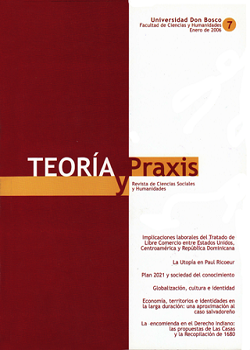Implicaciones laborales del Tratado de Libre Comercio entre Estados Unidos, Centroamérica y República Dominicana.
DOI:
https://doi.org/10.5377/typ.v1i7.15083Palabras clave:
Tratado de Libre Comercio, CAFTA-RD, Implicaciones laborales, Derechos LaboralesResumen
Este artículo expone las posibles repercusiones del CAFTA-RD sobre la población trabajadora. Plantea, inicialmente, que los TLC facilitan los procesos de acumulación capitalista, la cual tiene su base en la explotación de la fuerza de trabajo. Posteriormente evalúa los resultados del capítulo laboral, a la luz de la garantía de los derechos laborales.
Descargas
112
Descargas
Publicado
Cómo citar
Número
Sección
Licencia

Esta obra está bajo una licencia internacional Creative Commons Atribución-NoComercial 4.0.
Los artículos publicados en este número pueden ser reproducidos libremente cuando se haga con fines académicos, siempre que se cite la fuente. La reproducción en revistas u otros medios, o cuando se haga con fines comerciales, sea ésta total o parcial y por cualquier medio mecánico o electrónico, deberá ser solicitada por escrito, y autorizada también por escrito, por la Editorial de la Universidad Don Bosco o por el autor, según sea el caso.
http://creativecommons.org/licenses/by-nc/4.0/deed.es_ES




